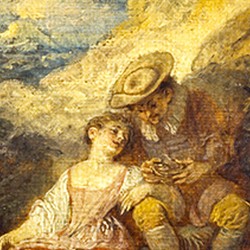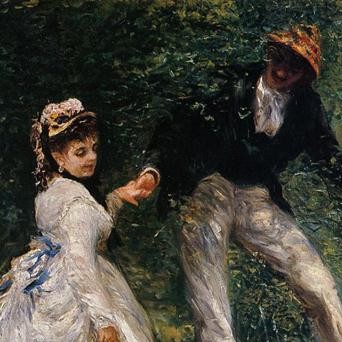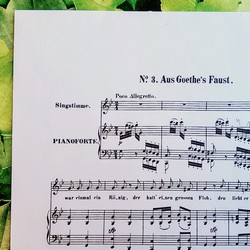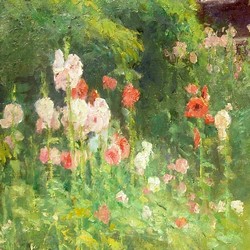- Details

To evoke a specific sensation in a listener is not a simple task: to transmit this particular emotion, and not another must be done skillfully. Paul Verlaine, the author of the poem En sourdine, found a magnificent way of doing so. Moreover, we have been lucky that Debussy provided the poem with a new musical dimension by exalting the words of Verlaine with elegance, subtlety and delicacy, well known of the great master.
- Details

In 1884 the 51-year-old bachelor Johannes Brahms wrote Wir wandelten, based in one of the poems in Polydora by Georg Friedrich Daumer, which was inspired by a Magyar text. When Brahms had the opportunity to meet Daumer in 1872, the poet had never heard neither of the composer nor his Lieders despite the fact that Brahms had written music to more than sixty poems by Daumer, including the famous Liebeslieder Walzer.
- Details

All Lieder talk about you. About you, About me, about us… With Lieder, it happens as with fairy tales, that if we stop to look at them carefully we find a metaphor of life itself. This is one of the things I experience more and more as a Lied student. And that is what happens with the Beethoven song that I am going to comment on.
- Details

This article starts the month of July and ends the so-called regular season of Liederabend. Next week, the summer season (so to speak) is beginning, which in recent years has grew into two parts. July is for the students following the ESMUC Master's Degree in Lied; We're collaborating for the fourth time in a row with the subject "Literature of the genre. Repertoire of the German lied", taught by pianist Viviana Salisi. The final work project module involves writing a post for this blog; each student chooses a Lied that he or she knows well and talks about it in our usual format [...]
- Details

"A Lied is like a micro-opera." This expression is often used to emphasize the difficulty of conveying the wide content of a song in the couple of minutes it lasts. I don’t really like this simile; I understand that it's usually addressed to people familiar with opera, but I don’t like it because it can be confusing: a Lied is not an opera, neither big nor small. And it is not for a number of reasons. First, Opera has a marked narrative component, while Lied, in general, does not; some Lieder tell us a story, like Erlkönig or Der Zwerg, [...]













